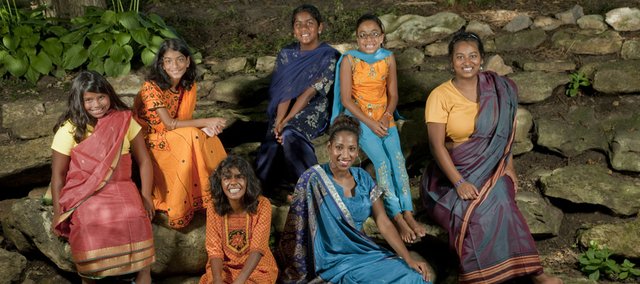On the Threshold of Modernity and Tradition
What would it be like to sit in a dark room all by oneself and talk endlessly to a mobile app trying to get over depression? In the modern age one of major crises that we face is the lack of individuals who would come and listen to us without forming a judgement?
In traditional societies such as India it was not long ago that extended families lived together, cousins and siblings played in the same courtyard, uncles, aunts, grandparents and other elders were part of the growing up of children. One of the arguments given against this sort of a family arrangement is that people lacked their space and privacy, that even if they didn’t want to they were compelled to settle down with the choices of others and that there was no freedom.
While living with several other individuals may have the need to compromise and adjust compared to when living alone, it surely does have many advantages too.
Living in a home that caters to a large number of family members means that one can naturally converse with others, form strong human relationships, speak their heart out and collectively learn to pay attention to the pains and anxieties, troubles and dilemmas of others. This cultivates sensitivity, care and the feeling of solidarity that often we miss in our isolated homes in the city.
We Don’t Know Our Neighbours: A City of Anonymity
Many of us do not know our own neighbours, we have never bothered to know the name of the security guard of the apartment or say a thank you to the plumber who steps down into a dirty drain to clean the filth. Our atomised existence and the lack of human warmth are all collectively responsible for loneliness and anxiety in the city.
Our unnatural lifestyles, lack of true human bonds, enhanced competition, isolation and individuality are all collectively responsible for growing cases of mental illness, aloneness, anonymity and related mental issues in the city.

When we feel like crying there is no one , when we feel like sharing a good news there is no one, when we are angry and need somebody’ patient hearing there is no one- our fears, anxiety, tension,pain and dilemma build up over time and make us vulnerable to mental depression.
Applications can’t be a Cure to all Diseases
Today applications have been made for travelling (no longer requiring us to bring down the car window and take the assistance of a person walking on the road for directions), for ordering food (no longer requiring us to do a spontaneous experiment in the kitchen or walk to a nearby eating joint), for ordering grocery and daily essentials (cutting us off from a visit to the local store),for monitoring health(making us obsessed and restless) and for many other day to day aspects.
The lack of human to human interaction has led to the creation of an application that would replace the requirement of human presence and talk to you. For those who don’t have anybody with whom they can talk and nor have the time to pay a visit to the psychiatrist, this App allows one to speak for hours in a conversation with the app.
The App’s USP it is being argued is that unlike humans it does not get bored, does not judge you, does not share your secrets and does not profess. The App is like a silent and patient friend. The App has been designed by therapists, psychologists, counsellor and doctors to provide help to lonely individuals.
By an analysis of conversation and body movement the App can also warn you that you have suicidal tendencies or that you can be depressed. Wysa and Chatbots are two such Applications which are becoming highly used among city professionals in India. The people who have used the App suffered from loneliness, lack of companionship and warmth and so used the App in replacement of human companionship.
Thinking about the Onslaught of Applications
The App is becoming popular as many individuals suffering from mental anxiety are beginning its usage. There are four questions that we wish to reflect on-
In a society where anonymity, surveillance and cut throat competition are taken for granted, can applications and artificial intelligence take the place of human bonds?
While applications for certain domains of life may not be such a bad idea, why have applications for grocery, health monitoring, ordering food and shopping robbed us of the opportunity of real world experiences that require human interaction?
If human intimacy robs privacy does not extreme human individuality take away opportunities for sustained human interaction which is the essence of healthy minds?
For how long can we go on neglecting the real issue of the modern society that alienates individuals and pretend that our existential problems can be resolved by applications?
Pausing to Reflect
As we witness several city professionals come back home and talk for hours to their applications about the loneliness, the misery, the pain, the depression in their lives, we witness a strange paradox of our age. We live in the age of social networking and claim that the internet has reduced the world into a tiny village but yet we see that many people continue to experience loneliness and have nobody to speak to. It is ironic that while we are going on developing applications we are failing to realise the need for authentic introspection into the crisis of our times.













